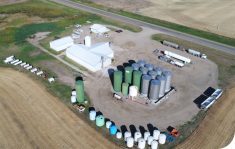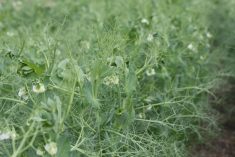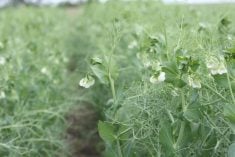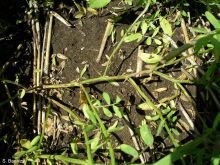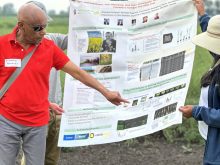Saskatchewan’s only major biodiesel manufacturer says an incentive announced in last week’s provincial budget will put the company on a level playing field with its competitors.
Joe Holash, chief executive officer of Milligan Bio-Tech Inc. in Foam Lake, said the 13 cents per litre incentive for companies that make at least 500,000 litres of biodiesel annually is comparable to what other jurisdictions already offer.
“We have provinces on either side of us that already have mandates and rebates in place so we’re very much looking forward,” said Holash after the March 23 budget speech.
Read Also

Volunteers help exotic animal farm rebuild
Exotic animal farm loses beloved camel and pony to huge hail storm that gripped the Brooks, Alta. area as a community member starts a fundraiser to help the family recover from the financial and emotional damage.
The incentive comes into effect April 1.
The province also announced a two percent biodiesel blend mandate, effective July 1, 2012. A federal two percent mandate takes effect July 1.
The program is expected to cost $26 million over five years. Enterprise Saskatchewan minister Jeremy Harrison said the goal is to have a mature industry by that time.
“If we wanted to participate in the production of renewable diesel, it was just a reality that we needed to have an incentive program,” he said.
The mandate will require 40 million litres of production.
Milligan has a capacity of 20 million litres but isn’t producing at that level right now.
There are several small producers, including at least one Hutterite colon y and individuals who make biodiesel for their own use.
A plant in Regina has capacity to take advantage of the incentive but is currently not producing biodiesel, a government official said.
Harrison added the program will help provide a new market for canola producers.
Catherine Folkerson, executive director of SaskCanola, said growers had been looking for a mandate and the incentive is a bonus.
“This is a great way for Saskatchewan canola growers and Saskatchewan industry to participate in the new green economy.”
The Canola Council of Canada 2015 strategy aims to boost production to 15 million tonnes of canola per year with about two million going into biodiesel.
Folkerson said the incentive nails down numbers so that businesses can plan. That in turn helps canola growers determine their markets.
“I know this year farmers had a bit of heated canola in their bins, maybe there was some green canola in their bins, so it’s great to get a floor price for that canola because not all of it can go into the food market,” she said.
Alison Ouellet, director of government relations for the Canadian Renewable Fuels Association, said the move to bring in an incentive before the mandate is a good strategy for Saskatchewan.
Saskatchewan Association of Rural Municipalities president David Marit said farmers are happy at the prospect of a larger biodiesel industry since they grow much of the feedstock.
BIODIESEL FACTS
There are 22 biodiesel plants in Canada either proposed or operating. Here are the western Canadian plants.
• Bifrost Bio-Blends Ltd., Arborg, Man.
• BioStreet Canada, Vegreville, Alta.
• Canadian Bioenergy Corp./ North Biodiesel Ltd. Partnership, Lloydminster
• City-Farm Biofuel Ltd., Delta, B.C.
• Consolidated Biofuels Ltd., Delta, B.C.
• Eastman Bio-Fuels Ltd., Beausejour, Man.
• FAME Biorefinery, Airdrie, Alta.
• Kyoto Fuels Corp., Lethbridge, Alta.
• Milligan Bio-Tech Inc., Foam Lake, Sask.
• Speedway International Inc., Winnipeg
• Western Biodiesel Inc., Calgary
Source: Canadian Renewable Fuels Association
———
none






